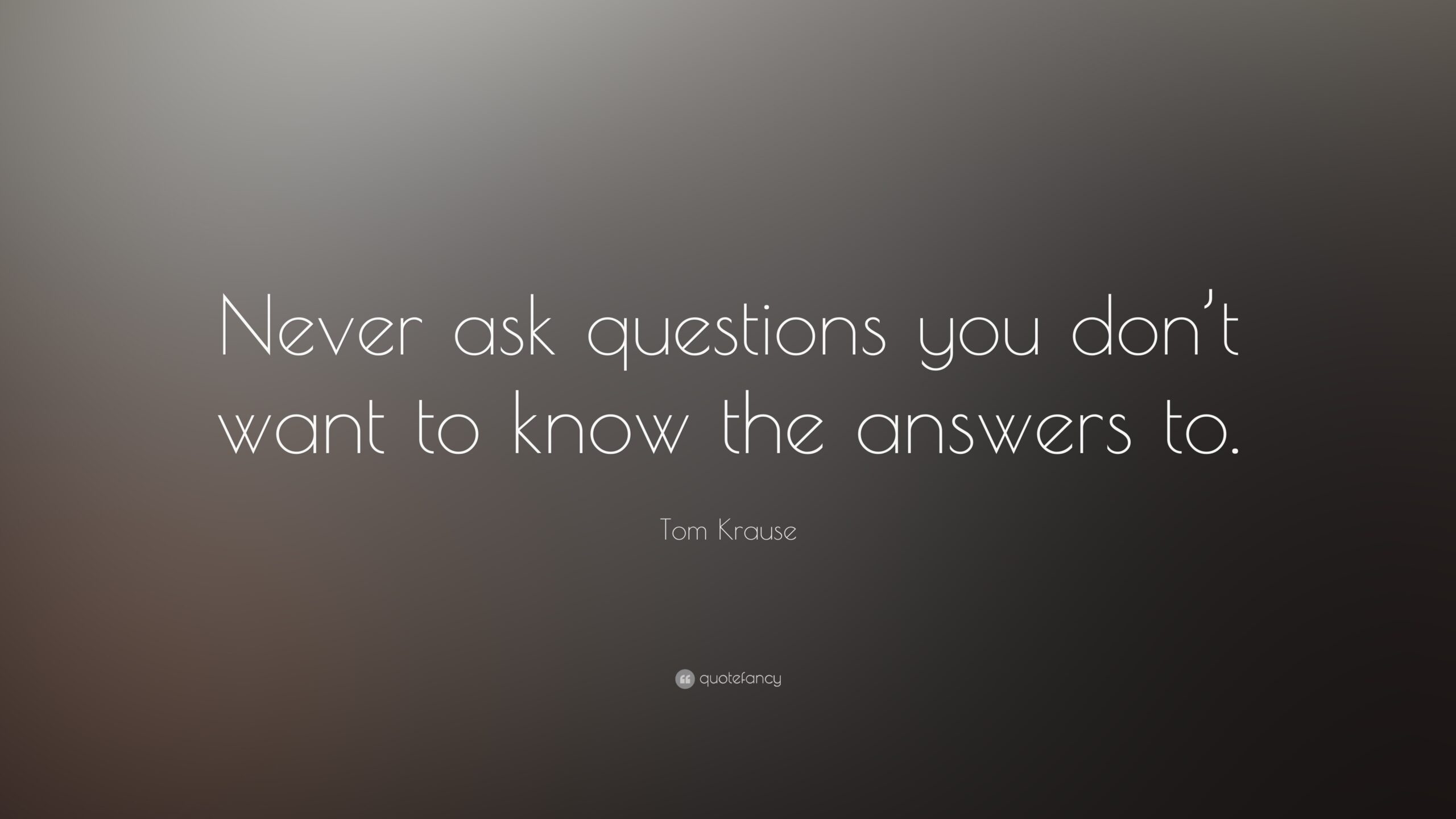Questions are probably one of the most critical tools for sales people and all leaders. They provide a powerful means of learning and growth. It’s through questions and questioning, we think about change, doing things differently.
But sometimes, our questions are less effective or actually weaponize our intent. They don’t help us or the people we are posing the questions to learn and grow.
Too often, we ask questions “with an implicit agenda.” The questions are intended to lead the responder down a a predetermined path to achieve the outcome the questioner desires. This questioning isn’t focused on learning or understanding. In reality it’s manipulation.
Sadly, this form of questioning seems to dominate too many conversations. As sellers, too often our “discovery” process really focuses on giving the opportunity to pitch our products. We ask questions that are intended to strengthen our positioning in the customers’ minds.
As managers, we do the same thing when we “coach” our people. We have an agenda, yet we know that “telling” or being directive isn’t effective. So we ask questions, but with an agenda. The questions aren’t to learn, or aren’t to get someone to think differently. The questions can only have one response–and it’s the thing we want our people to do.
Much of this manipulative questioning follows the mythical legal mantra, “Never ask a question you don’t know the answer to!”
In reality, while we tend to use this form of questioning too often, it is very ineffective. People recognize it. Customers recognize the manipulation, they know they aren’t learning anything in the conversation. They know they aren’t being helped, but rather they are being guided to an outcome the questioner wants.
Our people recognize the same thing.
There’s another form of questioning, let me call it questions driven by curiosity. These are questions driven by a genuine intent to learn and grow. They are questions without a specific agenda or driving to a specific outcome, but about an issue(s) of interest to everyone involved.
Questions driven by curiosity, cause everyone involved to rethink and reimagine, to consider new possibilities. It’s through these questions we learn. They provide the base for driving real change–change that’s owned by everyone involved.
Questions driven by curiosity may force us to reconsider our own positions. Where we may be supporting a change our customers or our people seek, we may find we have to shift our own views or thinking.
It’s these questions that drive collaborative conversations. It’s this learning that enables us to create value with our customers and with our people.
Then as we look at ourselves, our personal development and the development of our organizations. We, too often, avoid these curiosity oriented questions. We fail to challenge ourselves and our people with rethinking what we do, how we do things. We fail to look at how we grow, change and improve.
Mindset is important as we seek to grow and learn. Those with closed mindsets tend not to ask questions that challenge what they already know, instead they want to reconfirm their positions. Those with open mindsets seek to learn and grow.
Afterword: As I was writing this, I noticed a post by Keith Rosen on the same issue–focusing on high impact coaching. It’s very powerful and a great read: Sales Manager Questions

Leave a Reply